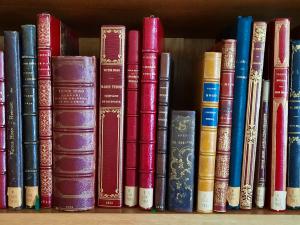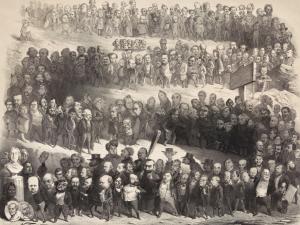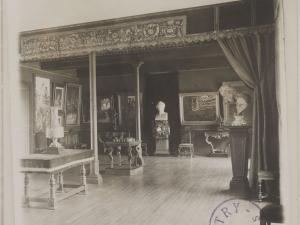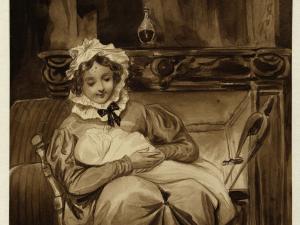Books, manuscripts and archives
From the outset, Paul Meurice installed a library within the museum where visitors could read the works of Victor Hugo. However, it was understood that the manuscripts were to go to the Bibliothèque Nationale [French National Library] in accordance with the writer's will. After the Second World War, however, the situation changed. This was mainly at the instigation of Jean Hugo, who wanted the museum to become a repository of Victor's private and family memory. The first manuscripts and archives were received, initially for storage, through a series of family donations from 1950 to 1980, supplemented by private donations and the museum’s acquisitions. Thus, over time, the museum's written heritage has been built up around three types of document: books, manuscripts and archives.
Books The museum library is both a heritage library and a research library. It contains almost all of the old, original, illustrated editions of Victor Hugo's works, and some rare and precious copies, sometimes “stuffed” by book lovers, with manuscripts, drawings and photographs. The library also holds a particularly important collection of essays on the life and work of Victor Hugo.
Manuscripts The collections have developed into two parts: correspondence and family literary manuscripts.
With just over 18,000 signed letters, correspondence is a special feature of the collections. The museum is pursuing an active policy of making them available online so they are more easily accessible to the general public. While Juliette Drouet's letters to Victor Hugo and the letters written by the poet himself are highlights, there are also a large number of letters from various family members and other parties.
The literary manuscripts are mainly those written by the family, including the writings of General Hugo (Victor Hugo's father) and Madame Hugo, as well as a large part of Adèle's (Hugo's second daughter's) diary from exile. There are also signed scores and manuscripts, novels by Victor's son, Charles, and François-Victor's translations of Shakespeare. Donated by his descendants, Paul Meurice’s significant collection completes this compilation. A large number of Victor Hugo's “offcuts” (working notes, fragments, first drafts) have been gifted to enrich the collections.
Archives Initially comprised of family donations, the archives have been built up over time. Leases, invoices, statements of royalties, etc. provide an insight in the great man's private, literary and political life. The testimonies created for occasions such as the poet's birthdays and funeral (verses, plays, and musical scores, dedicated or addressed to him) are a tangible measure of his success and of the popular affection in which he was held.





